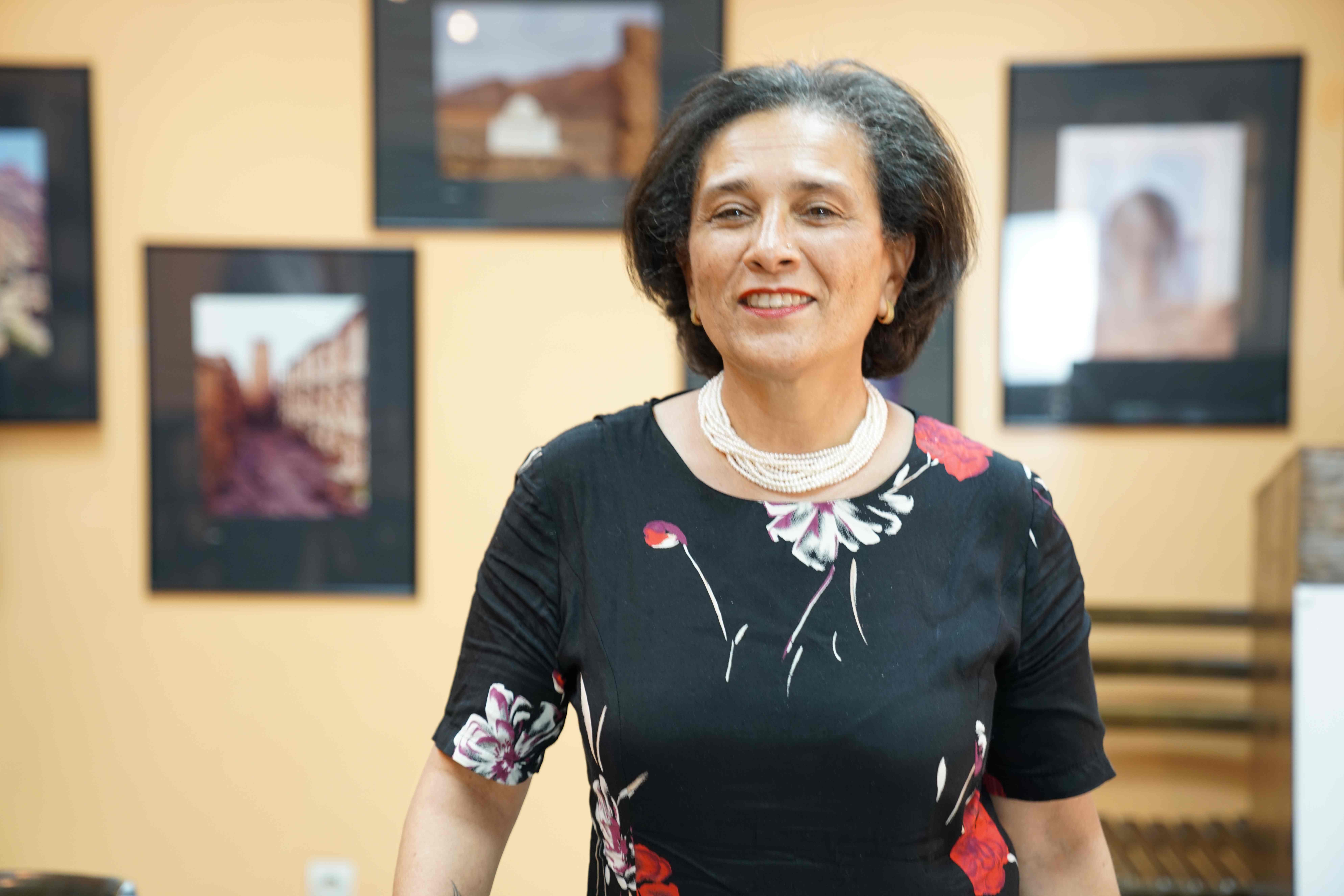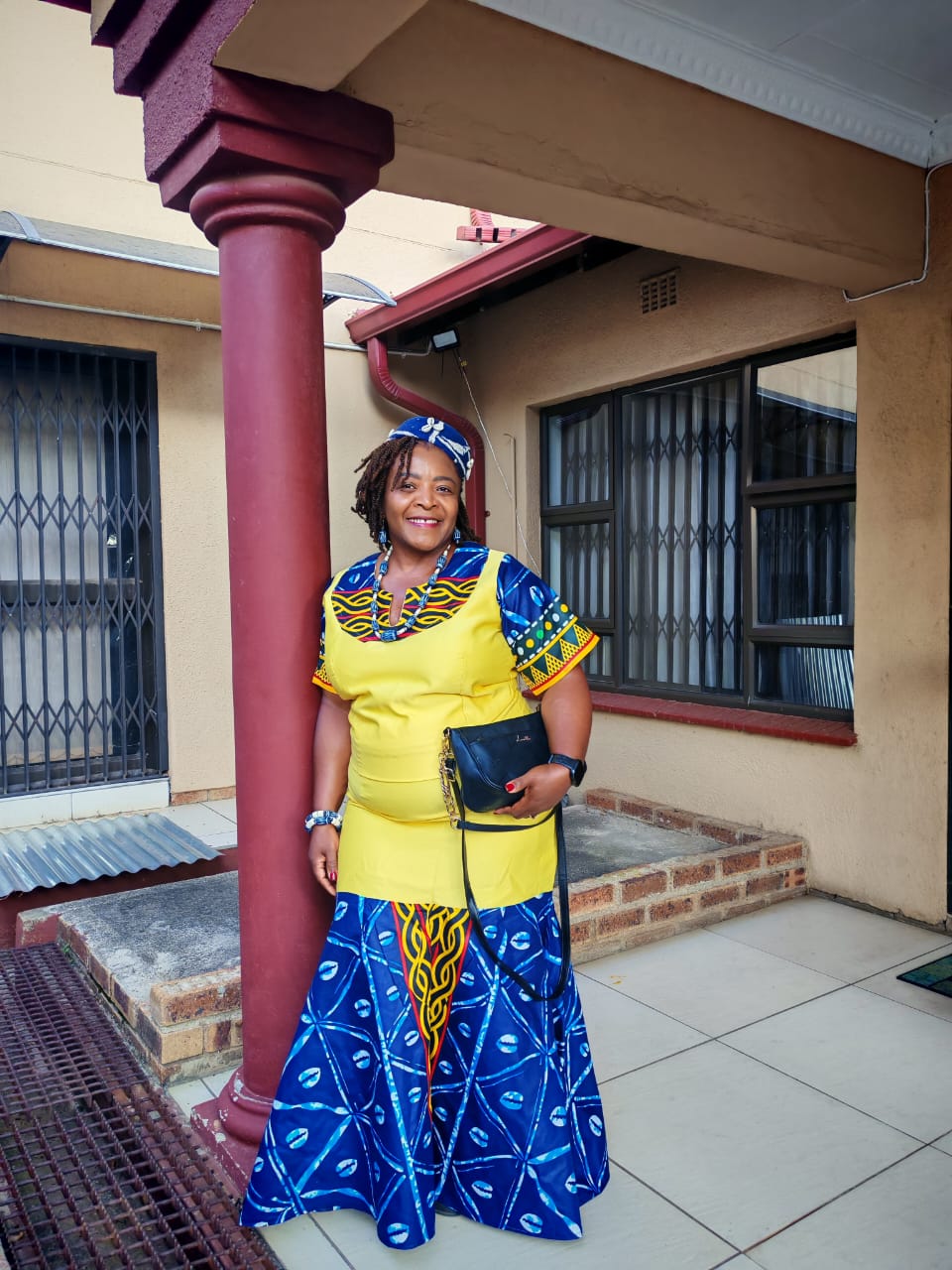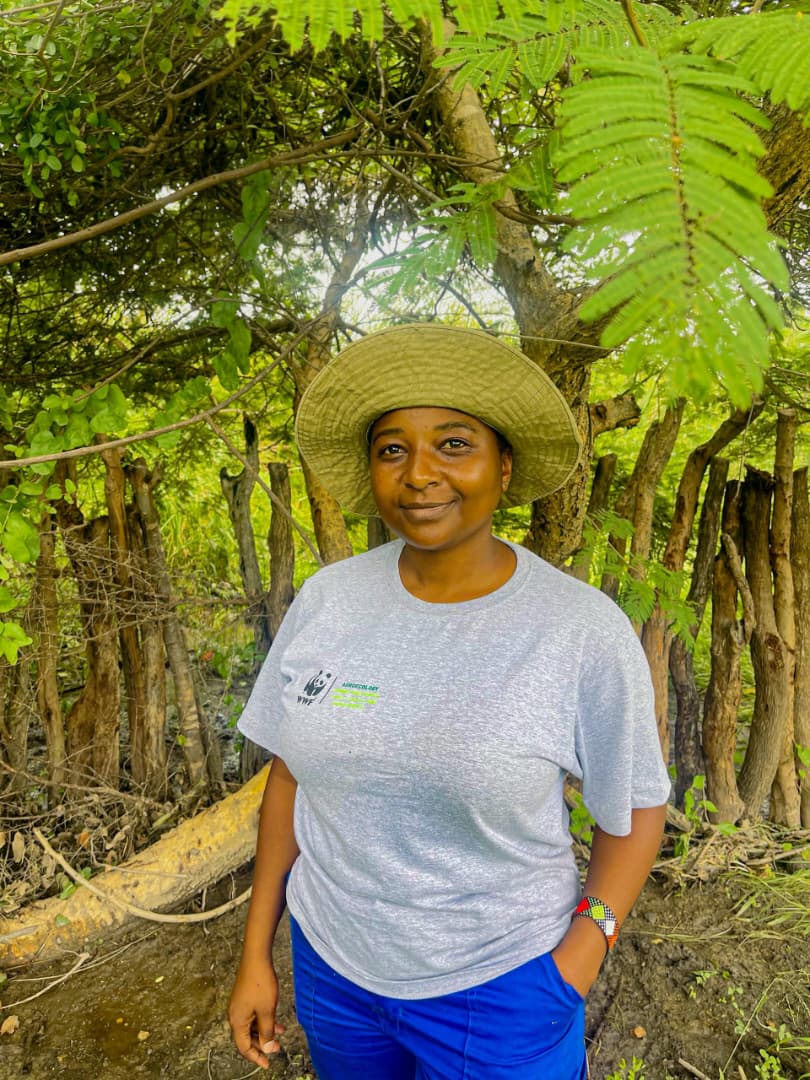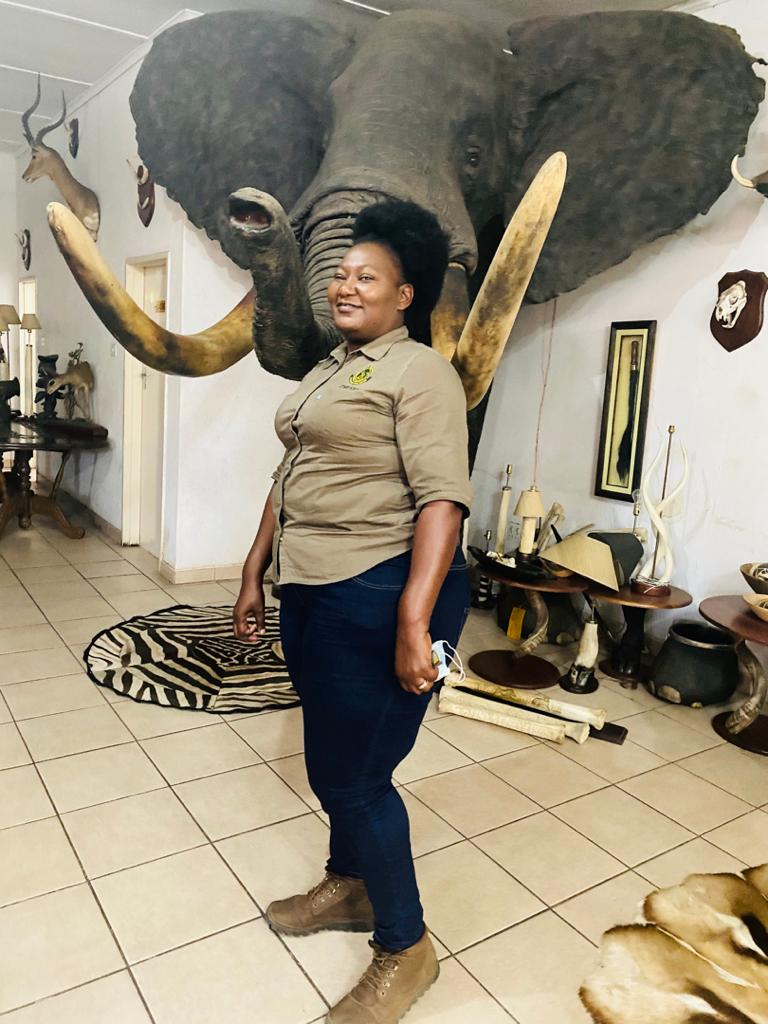Honing productive compassion is about stepping back from the knee-jerk reactions. Acknowledging that life comes with struggles but thinking beyond the immediate response. Considering the person's voice rather than imposing our solutions.
Jamila Bargach is a trailblazing activist and scholar who co-founded Dar Si Hmad, the world's largest operational fog water harvesting system.
Her visionary leadership has become a lifeline for communities facing relentless droughts in the Anti-Atlas mountain range of South West Morocco.
In her role as a professor at the National School of Architecture in Agadir, Jamila shares her extensive knowledge and experience with the next generation. Furthermore, she actively contributes to the development of environmental education programs for underserved schoolchildren.
The Women for Environment 2023 fellow shares her story with Damaris Agweyu.

Jamila, what brings you joy?
Cooking. Listening to people’s stories. Reading mentally challenging literature. Cats. Dolls—yeah, I've never grown up. I still play with dolls and stitch them too.
My daughter also brings me joy. We've had challenging moments, but she has brought so much richness to my life; so much connection to what's going on in the world of the youth today. We laugh a lot. She tells me what I should wear and how I should do my makeup. I don't care for makeup, but she knows so much about it, so I just go along.
I don't talk much about her in public spaces, but I must recognise her role in making me more compassionate toward myself. She has an amazing heart. She's intelligent. A tornado. She puts me to rest and that is saying a lot!
How would you describe yourself?
That’s a tricky one, so I'll go by what others have said about me: I am strong-minded and quite intense. I love committing to doing things well, not perfectly, because that’s a trap, but to the best of my abilities.
Some might call me overwhelming or intimidating. And yes, sometimes I might come off as a bit abrupt. The thing is, I'm a teacher with around 130 students, and I manage a team of 11 at my organisation. Plus, we interact with about 1000 community members, so there's a lot on my plate. I have to be efficient. But I am making a conscious effort to be gentle and caring first.
I always make time for my team. Every couple of weeks, we have meetings, and they are about work, but they are also about the person who does the work. So, I always try to find that sweet spot between efficiency and compassion. I've done many Vipassana sessions to hone productive rather than impulsive compassion.
I don't ever want to become jaded, so curiosity is a big part of who I am, and I cultivate this through reading and listening to podcasts. Be it scientific, spiritual, or philosophical material, I soak it all in. It's not just for my benefit; I need the knowledge for my students and for my organisation. Because curiosity fuels progress.
Tell me more about the notion of honing productive rather than compulsive compassion.
Imagine you're out on the street and come across a young child or homeless migrant begging. It's painful to witness people trapped in a life they didn't necessarily choose.
Now, the knee-jerk reaction might be to quickly offer money, a job, a toy, or some clothing, which I used to do. But over time, I've realised that this immediate solution isn't always the best. It was more about feeling like I did something good rather than genuinely addressing the person's needs.
Instead of rushing in with my fix, I've learned to approach these situations with more thought. It's not about hardening my heart; it's about understanding that what seems helpful to me might not align with what the person truly needs. They may have reasons for staying on the street at that moment, and pushing my agenda might not be the best move.
So, when I talk about honing productive compassion, it's about stepping back from the knee-jerk reactions. Acknowledging that life comes with struggles but thinking beyond the immediate response. Considering the person's voice rather than imposing our solutions.
You are the co-founder of the world's largest fog-harvesting project. Where does your journey with Dar Si Hmad begin?
The year was 2006, and my partner, Aissa, who's from Agadir, the region where the project is based, was studying fog. Our daughter was just a year old, and we lived in Casablanca, but I was teaching at the School of Architecture in Rabat. At the same time, I was volunteering at a shelter for women and children facing domestic abuse. I was very much involved in activism, women's rights, and feminism.
Meanwhile, Aissa was trying to launch this fog project in his village. We'd often get together for dinner with people passing through Casablanca and have some incredible discussions about fog. But after those discussions, I got on with my regular life.
Fast forward to 2008, and things at the School of Architecture got difficult for me because of some administrative changes I absolutely disagreed with. Aissa suggested we escape to the countryside. So we went to the site of the fog project. Getting to the mountain was extremely dangerous. And scary. The whole time, I was like, I'm going to die, I'm going to die. I want to turn back. I didn't die. I didn’t turn back. We arrived at the mountaintop. It was a clear, warm day, so I could see the sea from a distance on one side, and the Sahara on the other. And then, I saw what I thought were just clouds coming towards us. Aissa told me, “No, Jamila, those are not clouds, that's fog. This is our future”.

Mystics speak about the moment in which they become the thing. I'm not going to be pretentious and say that was it. But I can't translate what I felt into words. It was a spiritual moment. I fell in love with fog—not even in love—enraptured. I was that fog. All those incredible discussions we’d had about fog clicked in my head. It all made sense.
With administrative issues still brewing at the school, I was restless, unhappy, and constantly daydreaming about fog. Then, there was new legislation that changed everything. Professors were allowed to work with organisations while keeping their status. At the same time, the King had just delivered a speech about the need for support in the southern provinces that had been marginalised. He talked about how civil society could play a big part in tackling the issues there.
This was my moment. It took me a month to write the letter to the university. It was approved almost immediately. It felt good and bad. Good, because I had finally done what I wanted to; bad, because they didn't even fight for me.
Now, Aissa hadn't really considered a baseline study for the project, and this was my strong suit. I came across a fellowship that a wealthy American woman, Vera Campbell, was funding at The School for Advanced Research in Santa Fe. I applied and was accepted. In August 2009, I packed my bags and headed to Santa Fe with my four-year-old daughter. The experience was amazing. Next to We Africa, this was probably one of the most peaceful periods of my life.
In 2010, I returned home with funding, a viable program and a precise plan. We moved from Casablanca to Agadir and have never looked back.
We're not the first project in the world. There was one in Peru that stayed alive for about ten years. They were the pioneers. And then there is the whole history of fog collection and dew collection with a lot of small-scale projects where people have leveraged the resources they have. We've added our voice to the chorus.
What impact has the project had?
For me, the essence of any project lies in making use of the resources that are readily available. Let's not put miles of piping to bring water from the city and then power it with petrol or electricity. Yes, you're bringing water as a solution to the community, but you're causing so much pollution in the process and yet you have this locally available abundant resource that can get the job done.
The local population in this area has to deal with many challenges: recurring droughts, a severe lack of infrastructure, and limited access to drinking water resources. The responsibility of ensuring its availability primarily falls on women.
We have helped change this story by delivering non-stop water to 16 villages since 2018. We're currently in the process of extending the project to include four more villages. But the water is not free. We're not about returning investments because we're not-for-profit. However, the moment you give something for free, it loses meaning and importance. And then there is no care for it. So because of the nominal, symbolic fee we charge, people are careful with the water.
Women who used to spend hours searching for water can now devote their time to other activities of their choice. One school was going to close because it didn't have enough enrollment. When we connected the villages to the water, the families stayed, and the school had enough students to stay open.
We’ve made it possible for communities that would have otherwise migrated to stay connected to their land. When people live as traditional stewards of the Argan forests, plants, and flowers, an equilibrium is created.
We're now thinking about agriculture. People don't practise it anymore because there is no rain. The water we provide can solve that problem. Films and documentaries have been made about the project, and all these images have gone back to people's homes. That has created a significant trust capital between the community members and us. There is a sense of pride in being the depositories of such a unique project. It's a beautiful symbiosis that reaffirms the project’s significance.

How did you navigate your way back into teaching while running this other very intense project?
The thing is, I never stopped teaching, researching or publishing. We hosted international students in study programs for ten years, and that helped us raise funds.
But two years ago, the university presented a choice: come back or resign from the teaching position.
I went back to teaching, this time as a full professor at the National School of Architecture in Agadir. I always say that last year was a year that came directly from hell—the amount of work I had to do! However, it was necessary because I had acquired so much knowledge and experience from the project that I needed to transmit to this new generation.
It isn't easy, and I have to be careful not to let myself be carried away by the waves of work and find time for self-care. I practised it before, but WE Africa clarified that it is a necessary and central part of managing my life.
What else have you learned from your WE Africa journey?
Historically, there has always been a sort of rift between North Africa and sub-Saharan Africa. There is a dominant idea of black Africa as being a certain way with very pejorative images. Rationally, I thought I was decolonised and knew Africa but the Africa that I thought I knew is not the Africa that WE Africa exposed me to.
I discovered and forged friendships with a wealth of amazing women—trailblazers, pioneers and deep thinkers—who exposed me to the richness and diversity of thought within the continent. The perceptions about sub-Saharan Africa that I did not believe in, of course, but were dormant in my subconscious mind died instantly.
And now whenever we turn on the TV at home, which we don't often, and there is a report about Africa with black children begging, I turn it off because that's not the only reality. I am no longer going to be travelling for my holidays to Europe or America. It will be within Africa—starting with Kenya because I absolutely love it!
This is what WE Africa gifted me with: a completely new narrative about Africa.
***
This interview is part of a series profiling the stories of the 2023 WE Africa leadership programme fellows, African women in the environmental conservation sector who are showing up with a strong back, soft front, and wild heart.





